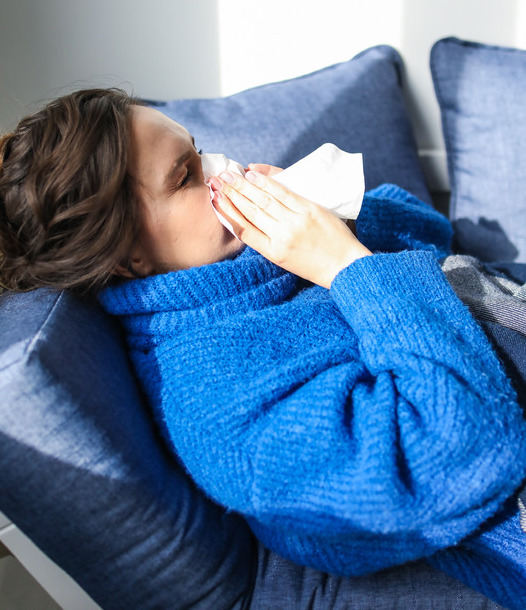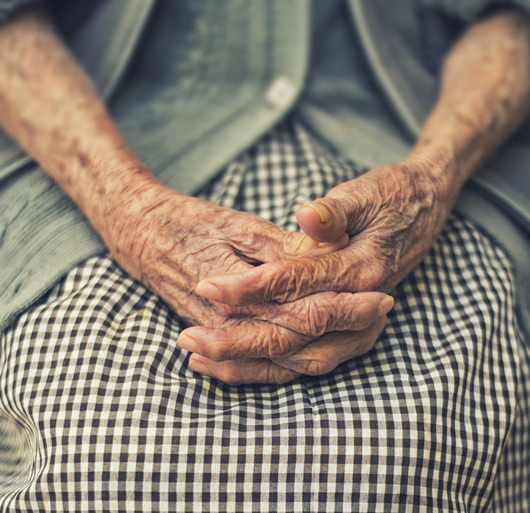Herbal Evidence
Can lavender help relieve pain?
Lavender is commonly used to reduce anxiety, but is there evidence that it can also relieve pain?
Last updated: 24 June 2020

Dealing with pain
Pain is an unpleasant sensation that can be experienced in many parts of the body. When the duration is short it is referred to as acute, while pain lasting at least 3 or 6 months is described as chronic. Causes of pain include injury, medical interventions as well as conditions such as cancer and multiple sclerosis.
Pain is difficult to measure and, being subjective, comparisons between people or with an objective threshold can be difficult. Therefore, there are a few ways of assessing pain in clinical studies. For example, pain may be assessed via self-reports where a researcher may ask the participant to rate their pain as either ‘mild’, ‘moderate’ or ‘severe’. Alternatively, if a participant in a clinical setting does not need an analgesic (painkiller) they could be considered as having tolerable levels of pain.
Millions of people experience either acute or chronic pain at multiple points in their lives. In addition to prescribed and over-the-counter medication, many try to manage their pain with physical therapy, psychotherapies and herbal remedies such as lavender aromatherapy.
What is lavender?

Lavender is a set of flowering plants that includes the species Lavandula angustifolia. It is grown in many parts of the world, particularly in southern Europe and the Middle East. Lavender can be consumed orally via capsules containing preparations of the oil or powder from dried lavender. Its essential oil is also widely used in aromatherapy and aromatherapy massage in attempts to relieve certain conditions. A number of randomised clinical trials have been conducted to assess the effectiveness of lavender on anxiety (see Can lavender relieve anxiety?). There have also been trials conducted to investigate whether it is helpful as a natural pain reliever.
Clinical trials assessing lavender for pain
After a systematic review of the literature, Herbal Evidence extracted the results from six placebo-controlled trials investigating the effectiveness of lavender for treating pain and three studies comparing lavender to no or routine treatment. Overall, the current evidence is that lavender does perform better than placebo in relieving pain in a range of situations.
In one study, women who had given birth via a caesarean section were randomly assigned to either inhaling 3 drops of 10% lavender oil or a placebo for 5 minutes at the start of the postoperative pain and again after four, eight and 12 hours. Among the women given the lavender aromatherapy, over half (57%) did not require Diclofenac suppositories as a pain reliever compared with just under a quarter (23%) of the women given the placebo aromatherapy (1). However, not all studies have found that lavender is effective for treating pain after childbirth. For example, another study that compared a lavender oil bath additive to a placebo (using a synthetic lavender oil bath additive) found no difference in the reduction in the women’s perineal discomfort scores between the two groups (2).
Another study of patients aged between 25 and 75 years who were undergoing coronary angiography were randomly assigned to either aromatherapy with lavender oil or distilled water (placebo) for 5 minutes 1 hour before the angiography. After the procedure, it was found that 55% of patients in the lavender aromatherapy group experienced only mild pain compared with 30% given the placebo (3). There is also evidence that lavender aromatherapy may help to relieve pain in babies. A clinical trial of healthy 2-month olds needing a 5-in-1 vaccination randomly assigned some of the babies to aromatherapy with lavender essential oil for 1 minute prior to the injection while the others were assigned to placebo (4). Five minutes after the injection 86% of the infants given lavender aromatherapy had a relaxed facial expression, indicating no or only mild discomfort, compared with 67% of the babies in the placebo group.
Overall, our review found that lavender aromatherapy can be an effective natural pain reliever for many people dealing with acute pain, including children. Although not everyone experiences tangible benefits and more research is needed to understand lavender’s effectiveness for dealing with chronic pain. Lavender aromatherapy is generally safe and well-tolerated, but one should consult the advice of a physician before changing any existing pain treatments.
For information on all the studies included in the meta-analysis, go to the lavender page, select “Pain” as the condition and download the related PDF fact sheet.
References
1. Olapour, A. et al. The Effect of Inhalation of
Aromatherapy Blend containing Lavender Essential Oil on Cesarean Postoperative Pain. Anesth Pain Med 3, 203–207 (2013).
2. Dale, A. & Cornwell, S. The role of lavender oil in
relieving perineal discomfort following childbirth: a blind randomized clinical trial. J Adv Nurs 19, 89–96 (1994).
3. Ziyaeifard, M. D. et al. Effects of
Lavender Oil Inhalation on Anxiety and Pain in Patients Undergoing Coronary Angiography. Iranian Heart Journal 6, (2017).
4. Vaziri, F. et al. The Effect of
Aromatherapy by Lavender Oil on Infant Vaccination Pain: a Double Blind Randomized Controlled Trial. J Caring Sci 8,
17–21 (2019).





